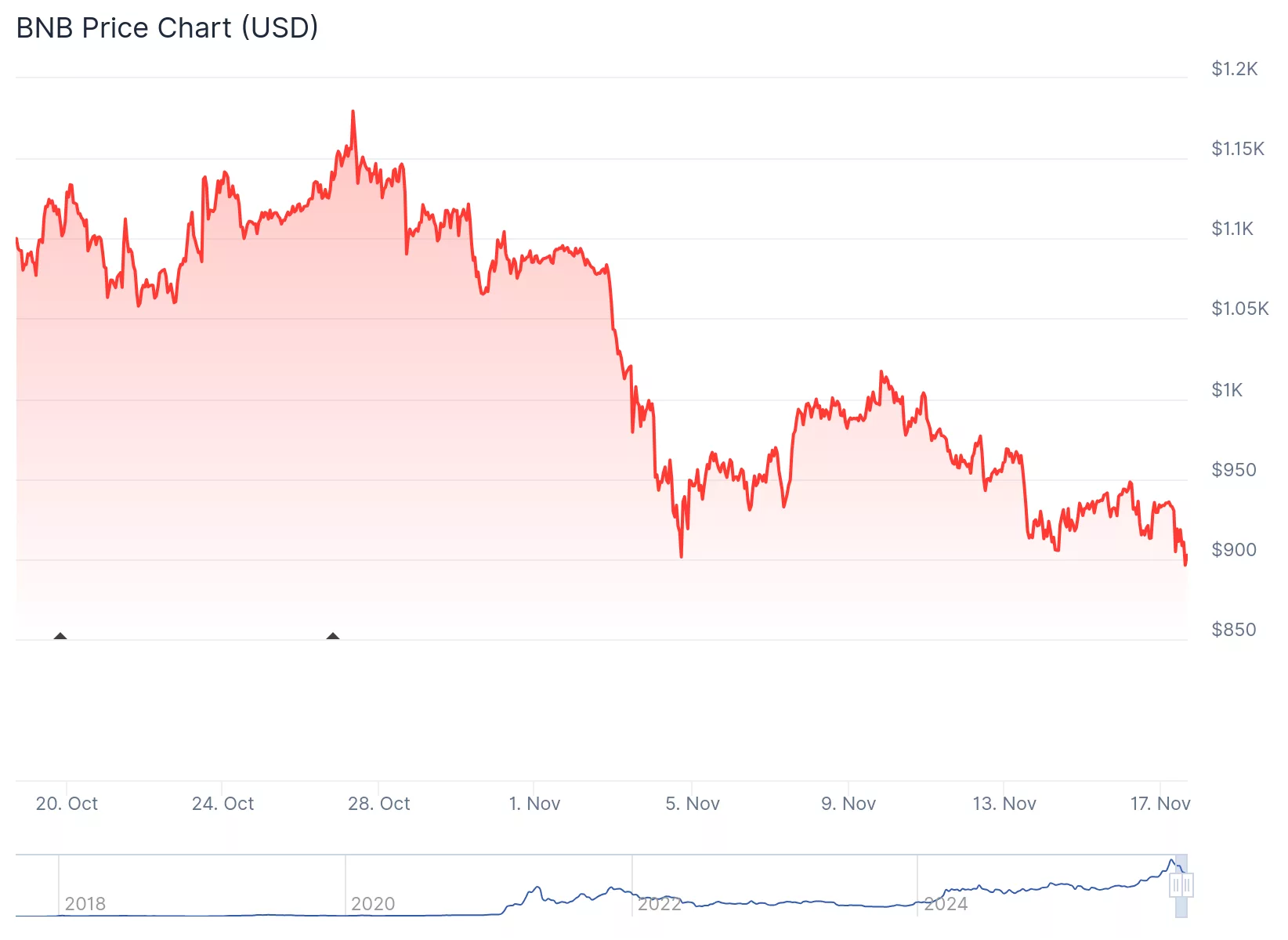
Binance Coin extended its weekly decline on November 17, dropping after a pullback in the last 24 hours, according to market data. The cryptocurrency traded firmly below a key psychological level, reflecting broader market stress across large-cap digital assets.
The dip comes amid growing scrutiny of Binance, especially after its founder, Changpeng Zhao received a controversial pardon from President Trump, raising questions about potential pay-to-play allegations.
Summary
- Binance Coin extended its weekly decline on November 17, trading below a key psychological level as market stress impacted large-cap digital assets.
- A jump in 24-hour trading volume amid falling market cap indicated intensified selling pressure, while technical analysis showed a persistent downtrend with lower highs and lows.
- RSI indicators showed weakening bullish momentum, signaling potential continued bearish sentiment unless a price rebound occurs above a key resistance level.
Binance technicals
The token’s market capitalization fell while 24-hour trading volume jumped significantly, indicating intensified selling pressure, according to trading data.
The chart below shows a loss of momentum throughout the last few weeks, with a sequence of lower highs and lower lows confirming a persistent downtrend.
At last check, BNB was down 18% for the month, trading at roughly $903.

Price action repeatedly failed to reclaim a previously important zone, which has now flipped into resistance, according to the chart data. The sharp late-session drop brought Binance Coin to its lowest point since early November.
The Relative Strength Index (RSI) signaled weakening bullish momentum but had not yet reached oversold territory, according to technical indicators. Throughout the week, the RSI repeatedly failed to break above mid-range levels, indicating that buyers have been unable to regain control. The most recent RSI dip showed temporary capitulation before a minor recovery, but momentum remained bearish.
More bad news for Binance
Binance has been linked to the flow of at least $28 billion tied to illicit activity in the cryptocurrency space over the past two years, as revealed by an investigation from the International Consortium of Investigative Journalists and other global media outlets.
This “dirty money,” according to the New York Times, is from hackers, thieves, and scammers. It’s funneled into, not just Binance, but other prominent exchanges like OKX.
The report highlights how criminal organizations, including North Korean cybercriminals, have used crypto exchanges to launder funds. Despite this, Binance, the world’s largest exchange, continues to grow.
In May, Binance inked a $2 billion deal with an Emirati fund using digital currency from the Trump family’s World Liberty Financial firm. Around that time, Zhao (known in the industry as CZ) applied for a pardon.
Zhao had served a four-month term in prison. Trump subsequently pardoned Zhao, sparking scrutiny and raising concerns about potential corruption allegations.
Trump later denied even knowing who Zhao was.

Source link

